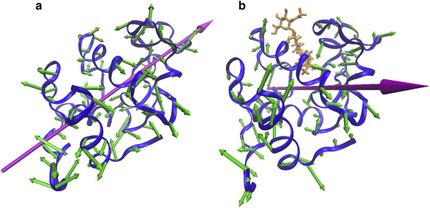NC State wins ARPA-E grant to study extremophile production of biofuels
The U.S. Department of Energy's Advanced Research Projects Agency (ARPA-E) has awarded a grant for more than $2.7 million to North Carolina State University to support research into the creation of biofuels using microbial organisms, called extremophiles, that live in high-temperature environments.
"Most biofuels, such as ethanol and butanol, are created by fermenting sugars produced by plants through photosynthesis. Our project would cut out the middle man by using organisms that utilize carbon dioxide and hydrogen to produce biofuels directly," says Dr. Robert Kelly, the principal investigator under the grant and Alcoa Professor of Chemical and Biomolecular Engineering and director of the Biotechnology Program at NC State. Kelly will be performing the research funded by the grant in conjunction with co-principal investigator Dr. Michael Adams of the University of Georgia.
The grant will fund research revolving around extremophiles – primitive organisms found in fresh water or saltwater that evolved before photosynthetic organisms, and which are found in hydrothermal environments with temperatures ranging from 75 to 100 degrees Celsius. Specifically, Kelly and Adams will be working with the microbes Metallosphaera sedula and Pyrococcus furiosus.
These microbes take carbon dioxide from the environment and produce complex molecules, including one called acetyl-CoA that can serve as a building block for biofuels. The researchers plan to genetically engineer Pyrococcus to include elements of Metallosphaera, creating a "superbug" that would be capable of taking carbon dioxide and hydrogen and producing biofuels. The researchers hope to engineer the microbes to produce butanol.
"One of the advantages of using these microbes is that they do well at high temperatures, and biofuel facilities will need to use high-temperatures to distill biofuels from the water where the organisms live," Kelly says. "Because of their heat tolerance, the microbes will continue to thrive even as the biofuels are being distilled, which makes the process significantly more efficient."
Furthermore, Kelly says, the microbes do not need light. That means that a facility that uses the microbes to create biofuels could be set up anywhere – even underground.
Most read news
Other news from the department science

Get the life science industry in your inbox
By submitting this form you agree that LUMITOS AG will send you the newsletter(s) selected above by email. Your data will not be passed on to third parties. Your data will be stored and processed in accordance with our data protection regulations. LUMITOS may contact you by email for the purpose of advertising or market and opinion surveys. You can revoke your consent at any time without giving reasons to LUMITOS AG, Ernst-Augustin-Str. 2, 12489 Berlin, Germany or by e-mail at revoke@lumitos.com with effect for the future. In addition, each email contains a link to unsubscribe from the corresponding newsletter.




















































